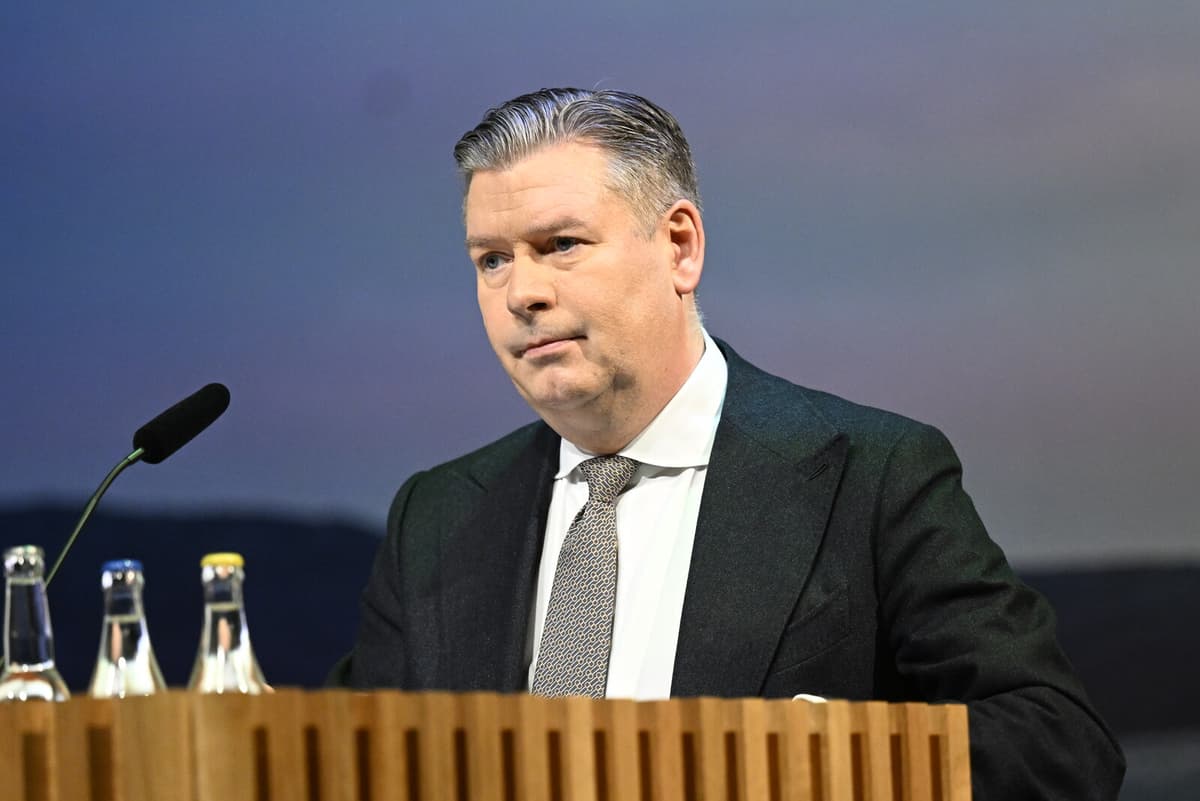The second quarter began with President Donald Trump's tariff shock on April 2, which shook the stock exchanges, currencies, and the interest rate market.
We had a near-death experience, says Johan Torgeby.
But this recovered with enormous force in the second half of May and in June, he adds.
Upturn at the end
The activity level among customers – both companies and households – increased noticeably towards the end of the quarter, which strengthened the bank's financial results.
The market apparently says that this is quite calm. We have the lowest premiums on credit spreads for a long time – that is, the premium that is needed today to take the risk of buying bonds. And the American stock exchanges have reached new highs several times during the quarter, says Torgeby.
But despite low risk premiums, the uncertainty is enormous, he warns.
It is sky-high.
Stable financial markets support the economy, with lower interest rates, low risk premiums, and high stock exchanges, he notes.
But the uncertainty about what the future brings – digitalization, AI, geopolitics – is the highest I have ever experienced.
SEB has during the second quarter increased its share of new lending in the Swedish mortgage market compared to the 13 percent the bank had of the mortgage stock last year.
Right now, it's going up a bit. But it's still extremely high competition. We can clearly see that the banks' margins (on mortgages) are historically very, very low.
Employment stop
He believes that the Swedish Central Bank may come up with one or two more interest rate cuts, but emphasizes that for SEB, monetary policy in the US and the euro zone is "at least as important".
Half of SEB's corporate lending takes place in dollars or euros.
In connection with the interim report, SEB announces that it is introducing an employment stop, after the bank has grown by approximately 3,000 employees to 19,000 employees since 2018.
But we are not getting rid of people, we just stop adding. We do not take in more external people unless it is a critical service in the bank, says Torgeby.
Joakim Goksör/TT
Facts: SEB's quarterly report in brief
TT
Major bank SEB reports a slightly higher result than analysts on average had expected for the second quarter of the year.
The result before credit losses and imposed fees fell, however, to 11.6 billion kronor. This can be compared to 12.9 billion during the corresponding quarter a year earlier.
The net interest income – what the bank earns on the difference between deposit and lending rates – was pushed down to 10.3 billion, from 11.7 billion.
The commission net, however, increased to 6.7 billion, up from 5.9 billion, while the net result of the bank's financial transactions fell back to 2.5 billion from 2.6 billion.
Personnel costs rose to 5.2 billion, compared to 4.8 billion a year earlier. All operating expenses totaled almost 8.0 billion, up from 7.4 billion.
The provisions for credit losses increased to 295 million kronor, from 44 million.






